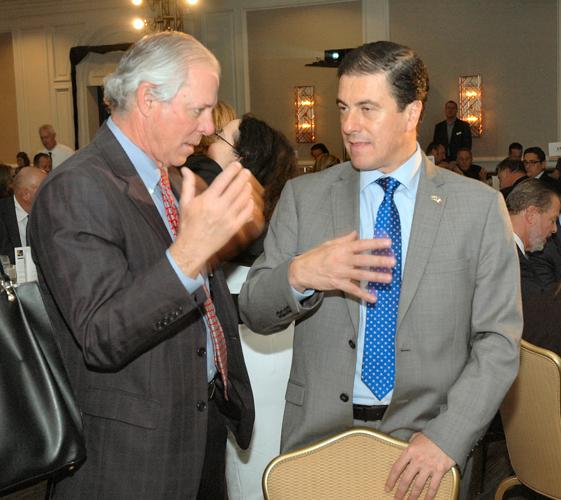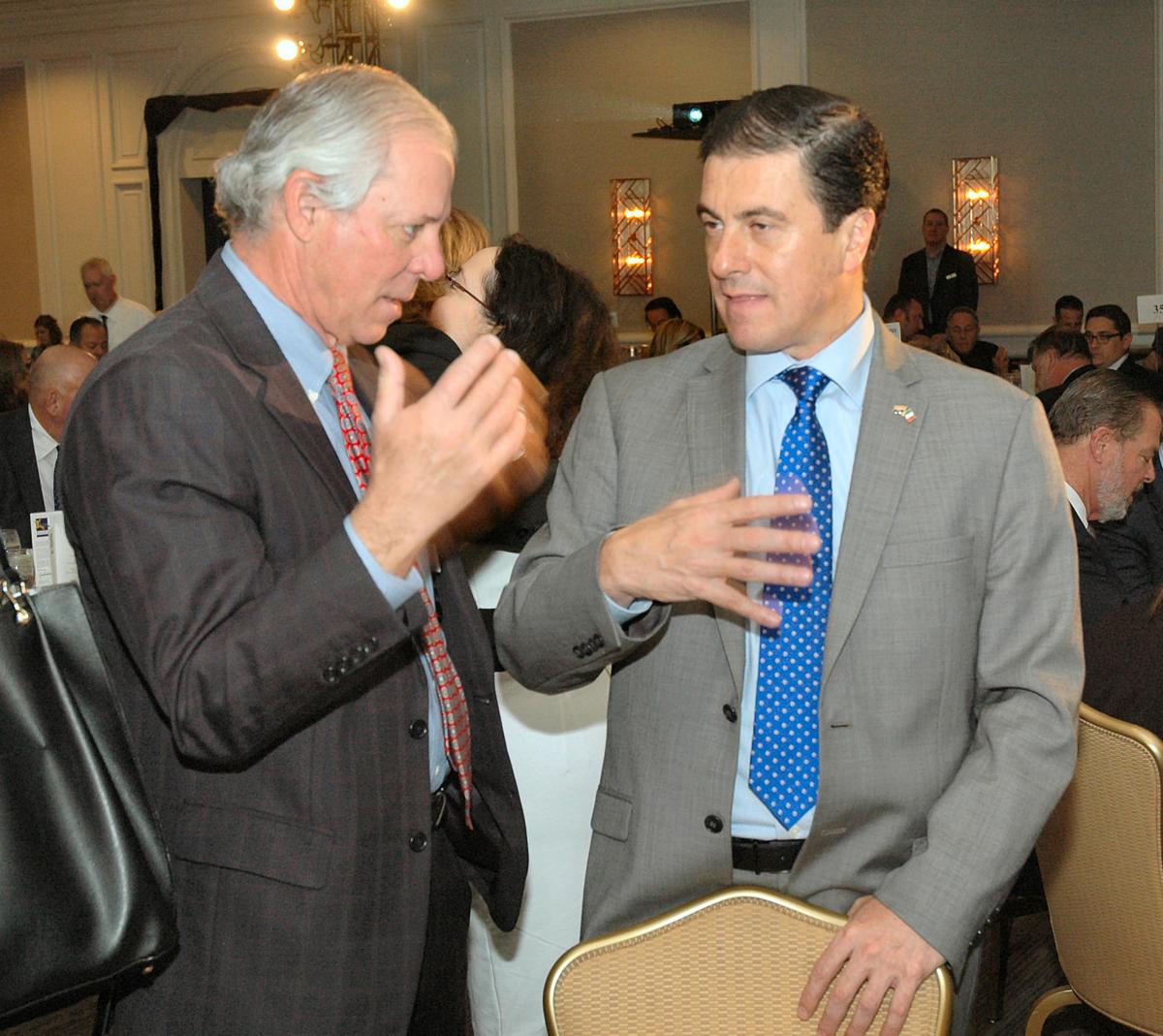PHOENIX — Mexico’s ambassador to the United States says those concerned about deteriorating relations between his country and ours need to speak up.
At a Phoenix event Wednesday organized by the Arizona-Mexico Commission, Gerónimo Gutiérrez Fernández said his attendance shows how his country and its government “value its relationship with Arizona and especially with the governor.”
Gutiérrez is reaching out not only to Gov. Doug Ducey and Arizona but also to leaders of other border states, with recent trips to California and Texas, as he attempts to deal with what he said is a “critical” state of U.S.-Mexico relations.
“Unless we do the right thing, the status quo is going to be different,” Gutiérrez said, telling his audience: “This is a good time for those of us who believe in the importance of a good relationship between Mexico and the United States, it’s a good time to be vocal.
“It’s a good time to raise our voices. It’s a good time to educate about what the relationship between Mexico and the United States is — and what it’s not — about.”
Gutiérrez had no direct criticism of President Trump, who has lashed out at Mexico and Mexicans for everything from sending drugs and criminals across the international border to taking U.S. jobs through the North American Free Trade Agreement.
“It’s no secret that the Trump administration and President Trump has what I would say is a basic concern about employment and investment in the United States,” Gutiérrez said, taking pains to to say that’s not necessarily a bad thing.
“Let me just be clear: It’s a perfectly legitimate concern to be preoccupied about employment in the manufacturing sector,” he said.
However, Gutiérrez said it’s not as simple as the Trump administration makes it out to be.
“The thing is that every country, and almost every government, has the same concern,” he said. There has to be a recognition that much of the problem of lost manufacturing jobs is caused not by trade but instead by technology, he said. “So we need to think about the ways, together, we can address that.”
“But we need to be careful about the diagnosis and the solutions,” he continued. “If not we could very well end up shooting ourselves.”
The ambassador said the relationship for the last few decades had been built on basic assumptions that people need to be reminded about going forward.
“The first one is, we are going to be better off working and listening to each other on a lot of the things we have to deal with instead of pointing fingers at each other,” he said.
Gutiérrez said that includes issues of Trump’s rhetoric like drug trafficking and organized crime, as well as questions about trade and water rights.
He also said the United States should recognize that its security concerns after the 2001 terrorist attacks are linked to similar concerns in Mexico, rather than U.S. officials seeing their southern neighbor as part of the problem.
“What 9-11 made very clear ... is that if you’re really concerned about nonstate security threats and nontraditional security threats ... you really have to be working with your partners throughout the globe to deal with security matters, especially with your neighbors,” he said.
Finally, he said, the two countries, along with Canada, made the decision to better integrate their economies through things like NAFTA.
“What happened is these assumptions have recently been questioned,” he continued, leading to a “major disruption in the bilateral relationship.”
Gutiérrez said if there’s any doubt about the benefits of that relationship, all anyone needs to do is see what’s happening elsewhere. “The world is a very messy place,” he said, noting the European Union is “under strain” and NATO is “also under stress.”
“You do have a resurgent China that is competing militarily, politically and economically with the United States, albeit peacefully,” he said.
“Why complicate North America?” he asked. “We have had something pretty good going.”
The ambassador said he was not saying that no changes and updates need to be made to NAFTA. “We do have to take into account the e-economy is here,” he said. That means addressing things like intellectual property rights and more modern concerns about the environment.
Ducey, speaking to the same group, underlined the ties he has made directly with the national government in Mexico, citing the $8.3 billion in exports from Arizona to that country and $7.4 billion in imports.
“A safe, secure and efficient trade relationship is critical to Arizona’s jobs and our future economy,” the governor said. “And we’re going to build on this progress together.”







